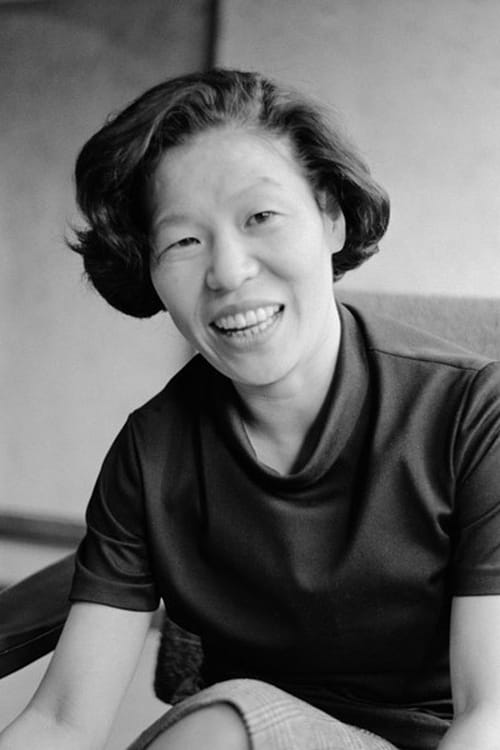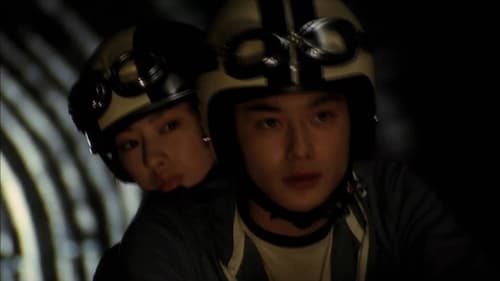
Old lady
A young woman named Izumi (Keiko Kitagawa) suffers the loss of her boyfriend Junichi (Masaki Okada), who died from a fatal motorcycle accident. The shock from her boyfriend's sudden death causes Izumi to lose her memory from the time of the accident. A lawyer named Makiko (Nene Otsuka) then helps Izumi to remember the final moments of her boyfriend's life.
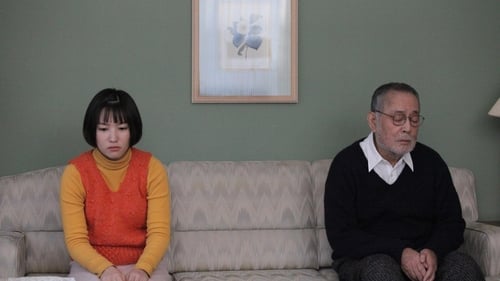
Keiko Kanemoto
Stuck in a fishing village in Hokkaido, Tadao's grand-daughter Haru is desperate to visit Tokyo, a trip Tadao is reluctant to make.

Nakamura Sen
This show marks the return of the jidaigeki series "Hissatsu Shigotonin," which has had several seasons between the 1970s and the 1990s. The franchise came back in 2007 with a one-shot special, but this is its first full season since 1992. Makoto Fujita returns as the protagonist Nakamura Mondo, one of the "shigotonin," a team of hired assassins.

Misao Murata
Home-design sales representative Tomohiro lives with his wife and their son. As his job involves houses, it is his motto to take great care of the family who live in the house. However, he has been working so hard that he has forgotten to cherish his own family. When he looks after a client who wants to leave her father-in-law in a nursing home, it reminds him of his grandmother whom he loved so much. Father's death, grandmother's struggle with disease, and home care - those were grueling times, but the memories have become invaluable for Tomohiro. He realizes his family is the most precious thing of all. On a day off, he and his family decide to visit his mother who lives alone in their old hometown.

In this direct continuation of the earlier special, Godai tries to figure out what to do with his life after college while competing with Kyoko's impossibly perfect tennis coach for her affection.

Nakamura Sen
A violent fire one evening kills a husband and wife couple and burns their Kazusaya rice shop to ashes. Their daughter Sachi manages to make it out alive, but she claims the fire was set by henchmen from the rival Harimaya shop who abducted her sister. After policeman Watanabe Shogoro hears her story, he begins investigating the case, but desperate to avenge her parents' deaths, Sachi later enlists the aid of a mysterious woman who offers to kill Harimaya for a price. Watanabe soon discovers that there is more to this case than meets the eye.
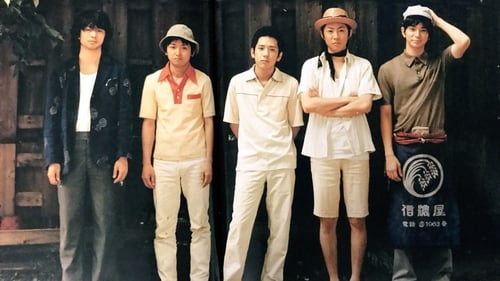
Yone
The movie is centered around five friends as they end up spending the summer of 1962 shackled up together in a tiny studio apartment in Tokyo. The five friends are Eisuke - the manga artist, Shoichi - the singer, Ryuzo - the novelist, Kei - the painter and Yuji – the 5th wheel (?). The friends spend the summer in pursuit of their own ideals of personal freedom - being able to do what they want. In the process of pursuing their dream they learn firsthand that however ideal it may seem, its not as easy as they think.
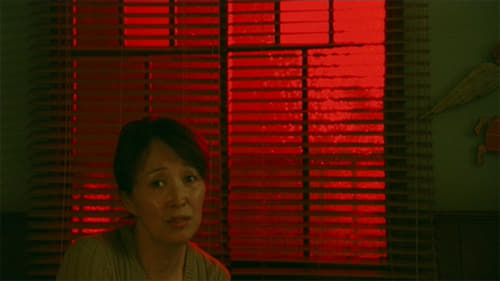
Taeko Katakura
Four people are discovered brutally murdered in an up-scale high-rise apartment. All the victims appear to be family, but as the investigation deepens it is discovered that one of the victims isn't related to the family.

Interviewee
Documentary made by Toho for the Masterworks reissue of all of its Kurosawa films. This one focuses on "Ikiru" (1952).

Director Mitsutoshi Tanaka's adaptation of a manga by Shotaro Ishinomori was an official selection at the 5th Shanghai International Film Festival and won the award for Best Screenplay at the 14th Tokyo International Film Festival.

Yuta's grandmother
Veteran filmmaker Nobuhiko Obayashi rounds out the second of his two trilogies about his hometown of Onomichi with this film about the budding relationship between a young lad and an eccentric old man. Fifth-grader Yuta (Takuro Atsugi) is a typical city child looking forward to a summer of reading comic books and playing video games. Instead, he is bundled off to his grandparent's house on the Inland Sea. His grandfather, Yuta's parents explain, has been acting strangely as of late -- he eats the offerings in the family altar and once tried to lead attendants at a funeral in a rousing round of calisthenics. Since his mother and father are swamped with work, and his elder sister (Nana Sano) is studying for college entrance exams, Yuta has been asked to look after Grandpa. The old man takes Yuta on a tour of Onomichi, regaling him with 70 years of its history. Along the way, Grandpa slips in and out of the past, increasingly unable to discern between the two.

Kizaki, who moved to Tokyo from the Kansai region to become a manga artist, is assigned to work at a used electrical appliance store where he works part-time as a store keeper and repairman. One day, a woman comes to the store drenched from the rain. She is Setsuko, the only daughter of the store's president and a returnee. Since then, Setsuko often comes to the store. Kizaki becomes concerned about Setsuko, but Setsuko has something to do with Oshi, a senior who used to work at the store...

Sen
When an artist dies, the official cause of death is judged to be a stroke, but his daughter suspects foul play. She recruits the services of an assassin, who by chance encounters an old friend...

Tsukada's wife
A group of Japanese tourists try to forget their pasts and find themselves in India.

"Don't pity me, just give me money." A smart little girl, Suzu, for the sake of her beloved sick mother, has no choice but to attempt all ways to fork up the money required for the operation. It includes stealing, cheating and almost anything that could yield cash. However, deep within her is a sadness unseen by many.

Nakamura Sen
Fifth movie in the Hissatsu (Sure Death!) Series. At the behest of a corrupt bureaucrat, a mysterious band of murderers wage a bloody battle against three deadly assassins.

A young boy, Atsu, grows up along the banks of the Shimanto River in rural southern Shikoku. He comes to grips with the unfairness of life and the emotional pain involved in the loss of innocence. The film is based on an autobiographical novel written by Kyuzo Sasayama.

A highly anticipated cultural festival is less than a week away for the students of a local high school when mysterious, seemingly paranormal events start occurring within their building. A piano plays when no one is in the room; the power continually shuts off, seemingly at random; footprints are left behind by an unseen presence; objects appear to levitate and are hurled across the room. Concerned about the strange phenomena, six students, advised by Professor Yamakawa, form a research team and investigate the strange goings-on. One of the students is Reiko Kudo, who has ESP and a family history with the occult. As the investigation ensues, a disturbing story from the past emerges from the woodwork, culminating with an ESP confrontation on the day of the festival...

"Do Not Fall" - Set during Japan's Meiji period, three sisters are abused and exploited by their harsh father, including a daughter who plays the three-corded shamisen for pilgrims visiting the sacred chapel of Ise.
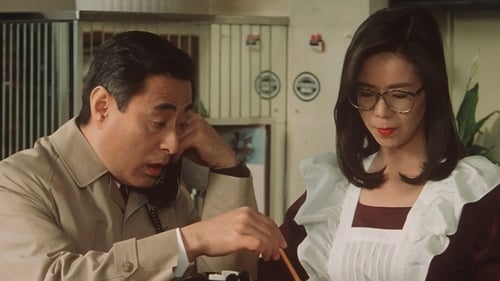
The film stars two of Itami's regular actors, Nobuko Miyamoto as a geisha who brings luck to the men with whom she sleeps, and Masahiko Tsugawa as her unfaithful, sometimes partner. As well as showing her relationships with the man she loves and the men who employ her, it satirizes corruption and the influence of money in Japanese politics.

Matsu
A middle-aged man's family loses patience with him as he struggles with his seemingly directionless life.
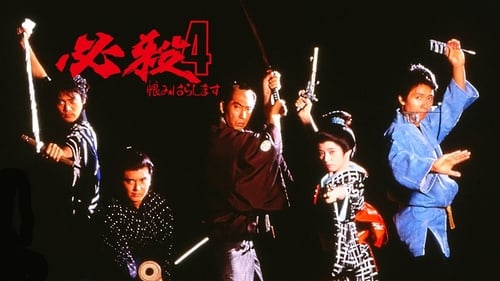
Sen
Having been demoted for failing to prevent the murder of one of his superiors, Mondo is startled by a group of masked thugs who are soon attacked in turn by an unseen force. He begins to suspect the work of assassins, but whose side are they on?
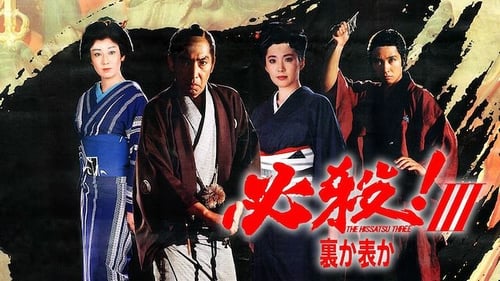
Sen
Third movie in the Hissatsu (Sure Death!) Series. Chasing the killer of a lawman, a group of assassins fall foul of a group of blackmarket financiers who dispatch their own hitmen to dispose of them.

Toyo
When a fugitive begins a romance with the woman hiding him from the law, it becomes uncertain whether he will ever escape the shadow of his heinous crimes--or the detectives hot on his trail.
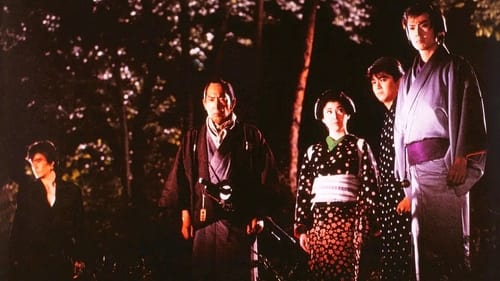
Sen
When the Shogunates greatest secret is stolen, the fate of the nation hangs in the balance. The Shogunate sends an incompetent cop, Tanaka, to Kyoto to act as a stalking horse. Hoping the thieves will kill Tanaka and the Ninja Spies will kill the thieves. But what the Shogunate doesn't realise is that Tanaka's even more incompetent assistant Mondo is in fact the leader of a gang of revengers for hire, there motto is "Sure Death" (or your money cheerfully refunded). Mondo doesn't know that everyone knows about the secret, but they all think he does. Poor Mondo, he not only has to deal with crazed Shogunate extremists, oddball ninjas, crooks who work for the Emperor and bicycle riding foreign death squads. He also have to deal with a wife and a crazy mother-in-law!

Tatsuo's Mother
Tatsuo, a reverent lumberjack, seeks to disrupt plans to build a marine park on his family land, instead promoting his traditions in reactionary ways.

This is a sad and beautiful story about a father who is a popular comedian and a son who suffered by an incurable disease.

Japanese comedy film.
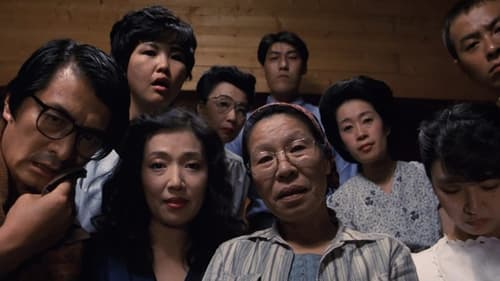
Kikue Amamiya
When Wabisuke's father-in-law unexpectedly dies, the family goes through a series of random events and occurrences as the funeral unfolds over three days in their home.
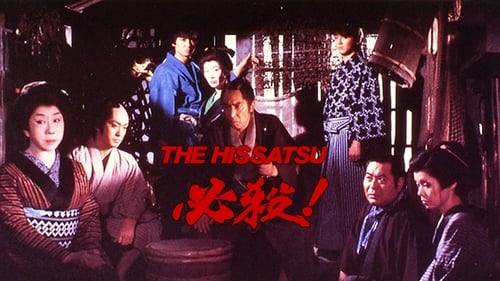
Sen
A group of seemingly ordinary merchants is really a band of assassins for hire. When they discover that all the assassins in Edo are being killed they must act quickly to find the culprit.
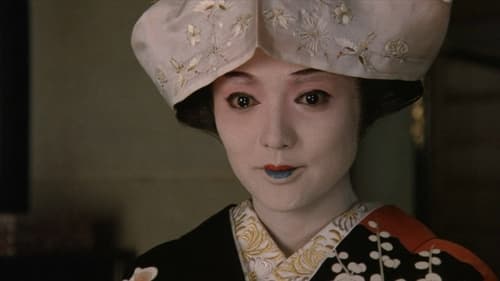
This story is based on the novel "Jo no mai" by Tomiko Miyao which is based on the life of painter Shōen Uemura (1875–1949), the first woman to be awarded the Order of Culture. The title refers to the masterpiece bijinga ("picture of a beautiful woman") that Uemura painted at the age of 61. The main character, Tsuya Shimamura, is born in Kyoto as the second daughter of a tea trader who dies before her birth. Tsuya, who loves painting more than anything and is hopeless at housework, attends art school and at age 15 receives the name Shōsui (from the characters for "pine" and "green") from her teacher. The crown prince of England purchases one of her works, propelling her to fame overnight. The novel portrays the remainder of her stormy life, during which she is impregnated by her teacher and raises a fatherless child; through it all she devotes herself to her painting, undaunted.

The president of the Japanese National Railways is found dead during a period in which train service is plagued by numerous layoffs, strikes and shutdowns. The government says that the president was murdered; the police claim it was a suicide. A quizzical reporter follows the case for years, but the basic question remains unanswered: was the victim killed by members of the burgeoning Communist movement in Japan, or was the death stage-managed by the authorities in hopes of discrediting the Communists?

The story is set in Bakumatsu and revolves around the Bunta Sugawara character, a yakuza (of course :) but instead of a modern yakuza/gangster, he's a gambler/bakuto). After he kills someone and gets wound, is saved by a blind woman (Mitsuko Baishô), who took care of him. They has a happy time under the protection of the Tomisaburo Wakayama character, an oybun. But of course, happy time doesn't last long. The story is also related to Okada Izo and the Shinsengumi (w/ Kondo Isami played by Makoto Sato)

Kane
Akira leaves for the Mt. Gassan foothills before winter's onset, visiting the local temple and interacting with the residents all while falling for fair Fumiko.

A thief, a murderer, and a charming lady-killer, Iwao Enokizu is on the run from the police.
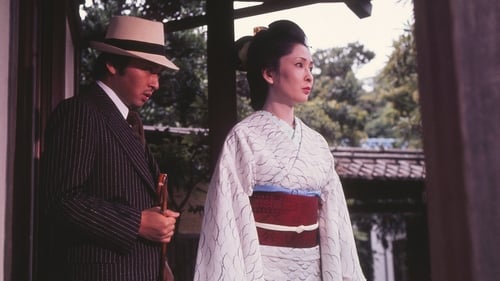
In 1930, the chance meeting of a novelist and one of his fans opens the door to a series of mysterious events culminating in the death of a wealthy industrialist who may have been leading a double life.
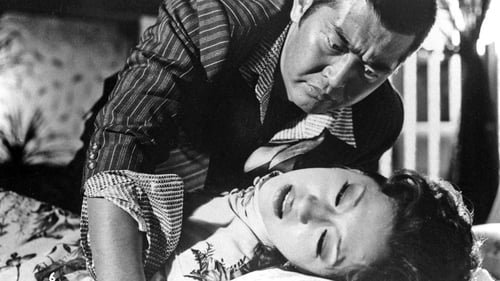
Kimiyo Wakamoto
A police investigator cracks down on yakuza business, but once he realizes the police are in negotiations with certain factions, he sides with his own syndicate of choice.

Junkichi is the son of a rich landlord, while Koyuki is the daughter of a poor lumber worker. The mismatched pair soon finds love, and against his father's wishes, Junkichi decides to run away with Koyuki to start a new life. But when Junkichi is called off to war, they make a pledge to sing the song of engagement everyday until they are able to reunite
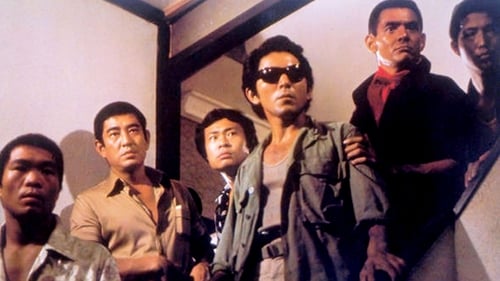
Chiyo
In 1947, in Kobe, Japan, a local street gang fights for their survival when its turf is overrun by United States occupation forces and international gangs.
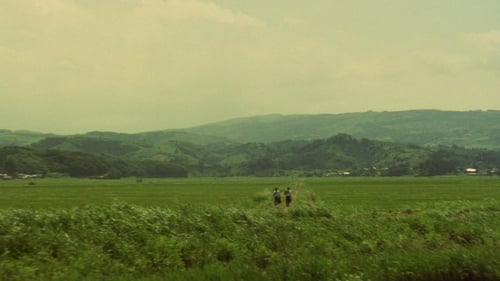
Yamashita
Two detectives are tasked to investigate the murderer of an old man, found bludgeoned to death in a rail yard.
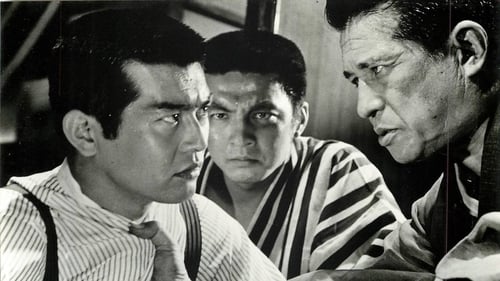
Okin
Tai Kato’s early 20th century set yakuza epic about an ordinary merchant girl (Hiroko Maki) who crosses paths with an assassin (Tetsuya Watari). The encounter sends her to jail as a suspected accomplice. Years later she marries a yakuza boss, whose gang is affiliated with working class people.

Upon his release from prison, Masa (Bunta Sugawara) is disappointed to not be picked up by his brother Katsu (Tamio Kawaji). After hitching a ride on a bus full of old women, Masa finds out that Katsu tried to fake a car accident and get some money for Masa to live on after prison. Together, the two decide to blackmail the woman (Yoko Horikoshi) who hit Katsu, who happens to be the daughter of a rich company president (Seizaburo Kawazu). 6th film in a series of 8.
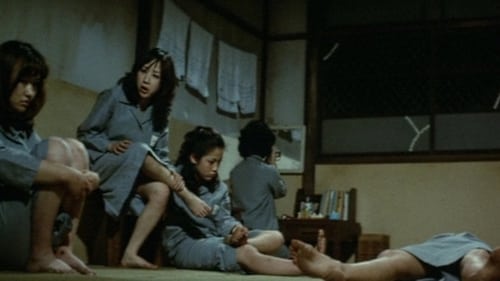
Kyoko's mother
Girl Boss Ruriko and her cellmates escape from a greedy corrupt reform school that's more interested in cheating the government out of money than reformation. Each having their own reasons for escaping, they go their seperate ways. With the help of a young mechanic, who's also on the lam, Ruriko tries to realize her dream of leaving the island of Japan behind. But the authorities are always one step behind her...
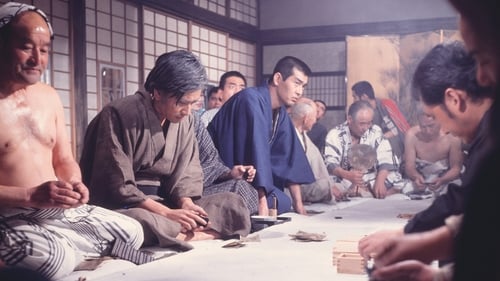
Kingoro Tamai moves with his wife and son to the port city of Wakamatsu. He organizes the Tamai-gumi, a stevedore group, to vie for work with two other powerful groups. Gingo is Tamai's chief rival who falls in love with the latter's wife and tries to kill Tamai.
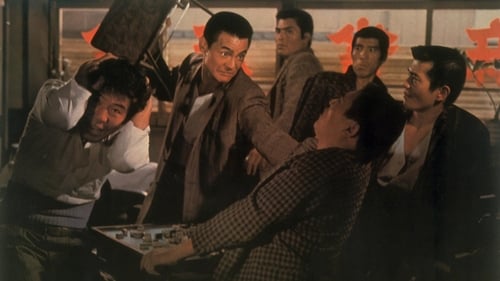
The great Bunta stars as a gangster who is sent to jail for the sake of his gang, but when he’s released he finds everything completely changed and his gang has swept him aside for being too violent. He tries to start a new life with his two ”brothers” but can’t seem to escape old affiliations

A ryokan maid is on trial for pushing a familiar guest off a cliff to his death. An eager attorney offers to take the case to gain notoriety.

Adaptation of the Shôji Yuki novel.
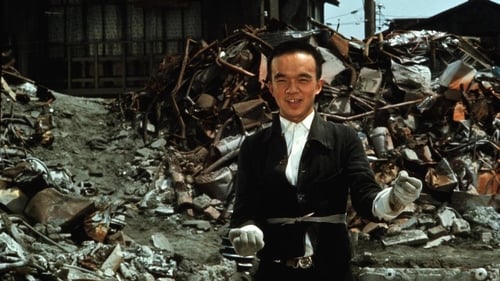
Okuni
This film follows the daily lives of a group of people barely scraping by in a slum on the outskirts of Tokyo. Yet as desperate as their circumstances are, each of them—the homeless father and son envisioning their dream house; the young woman abused by her uncle; the boy who imagines himself a trolley conductor—finds reasons to carry on.
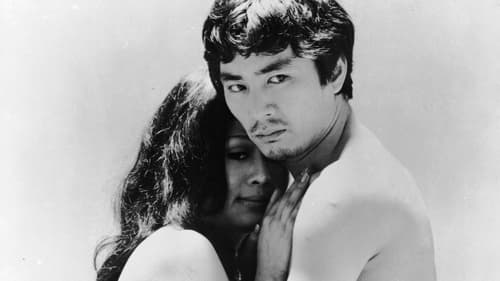
Mother
Near a remote Buddhist monastery, a young man falls in love with his sister and gets her pregnant. After a monk finds out, the young man becomes an assistant to a master sculptor, only to proceed to complicate matters with his affairs.

Japanese crime movie.
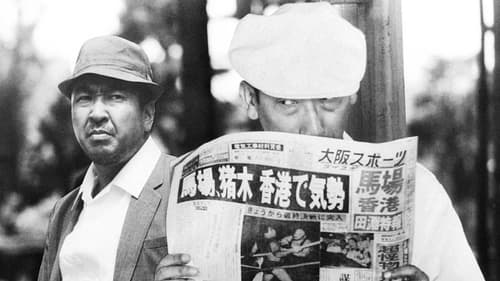
A crime story (with strong elements of comedy) that pits a determined detective against a gang of pickpockets in Osaka. The detective (played by Keiju Kobayashi) and the leader of the gang (played by Norihei Miki) have an interesting wartime backstory together that fuels much of the story.
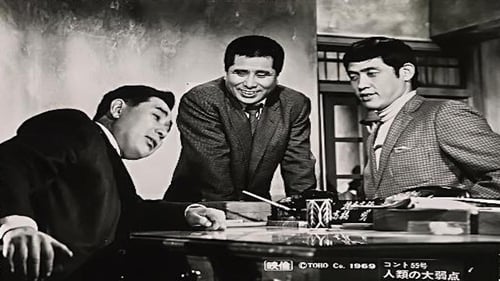
Old lady with Shingen bag
A Toho film featuring the comedy duo Konto 55, (コント55号), comprised of comedians Kinichi Hagimoto and Jiro Sakagami.

"The Time of Reckoning" transforms a screwball-comedy plot into a sober study of a successful businessman with serious relationship problems involving three women: his wife of ten years who announces she is pregnant by another man; a mistress who wants to have a baby with him; and an ex-lover who claims he fathered her son.
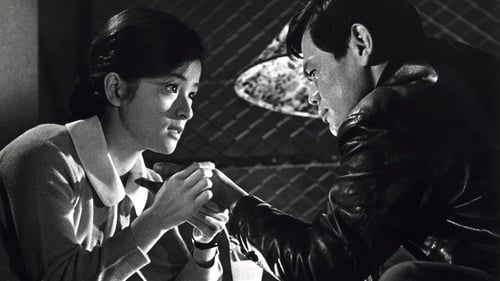
Mori Misa
Police investigators investigate the link between a serial killer's machinations and a young man who committed suicide.
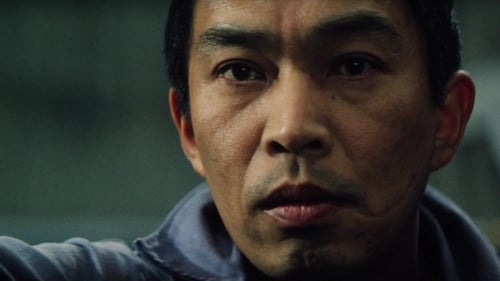
A former soldier is caught working the black market and sent to prison while his partner escapes and goes on to become a gangster, but their paths cross again as they both fall in love with the same woman.

Japanese drama.

Subu makes pornographic films. He sees nothing wrong with it. They are an aid to a repressed society, and he uses the money to support his landlady, Haru, and her family. From time to time, Haru shares her bed with Subu, though she believes her dead husband, reincarnated as a carp, disapproves. Director Shohei Imamura has always delighted in the kinky exploits of lowlifes, and in this 1966 classic, he finds subversive humor in the bizarre dynamics of Haru, her Oedipal son, and her daughter, the true object of her pornographer-boyfriend’s obsession. Imamura’s comic treatment of such taboos as voyeurism and incest sparked controversy when the film was released, but The Pornographers has outlasted its critics, and now seems frankly ahead of its time.

Ayako, a young woman from a rural fishing village, is sold by her family into a brothel when her father takes ill. There, she is quickly stripped of her innocence and illusions.
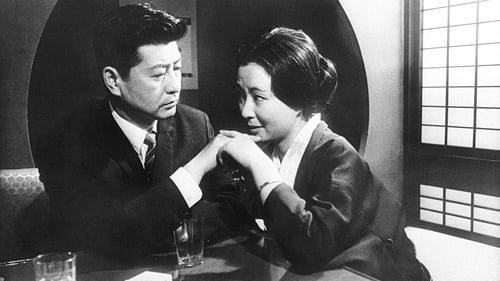
Oseki
"When human beings venture too far along a trail made by wild beasts, it is said, they quite often discover themselves on a road of no return." Based on the novel of the same name by Seichô Matsumoto.

A young girl in an industrial town is saving her money to enter college. But her drunken father loses his job, her mother cannot make ends meet, and then the boy she likes loses everything when his factory fails. She takes all her savings out of the bank and offers them to him to make a new start. He refuses at first but eventually agrees and so she goes back to school to tell her teacher that she has decided not to continue college, that she is young and strong, and can make her own way in life.

Choji's Mother
Aspiring to an easy job as personal physician to a wealthy family, Noboru Yasumoto is disappointed when his first post after medical school takes him to a small country clinic under the gruff doctor Red Beard. Yasumoto rebels in numerous ways, but Red Beard proves a wise and patient teacher. He gradually introduces his student to the unglamorous side of the profession, ultimately assigning him to care for a prostitute rescued from a local brothel.
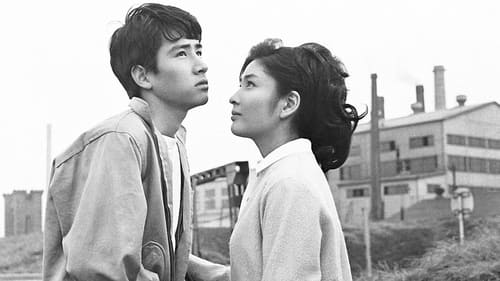
Ume Tanabe
Shinichi is not only poor, he is also deaf, and leads a joyless life with his sick mother. His one happiness is his friendship with a girl who works in a bar nearby. Then, one day, his mother dies after drinking the medicine that Shinichi himself gave her. It is discovered that the pills contained poison. He is apprehended on suspicion of murder and taken away for interrogation, unable to defend himself - being deaf and dumb - or even to proclaim his innocence.

Village woman (segment "Yuki-Onna") (uncredited)
Taking its title from an archaic Japanese word meaning "ghost story," this anthology adapts four folk tales. A penniless samurai marries for money with tragic results. A man stranded in a blizzard is saved by Yuki the Snow Maiden, but his rescue comes at a cost. Blind musician Hoichi is forced to perform for an audience of ghosts. An author relates the story of a samurai who sees another warrior's reflection in his teacup.

The first film with Tetsuro Tamba as a detective. An exciting drama about the pursuit of a criminal, which takes place in Yokohama. Tamba enthusiastically plays a police inspector who pursues a criminal who kidnapped his sister.

Could I But Live

A young factory worker struggles to figure out what she wants to do with her life.

Chiyo Takahata
Ayako (Sayuri Yoshinaga) is a free-willed college girl who shares a room with Takako and Kimie. They each have a clear vision of what they want from their career and love life. Soon, their room share takes a turn, when ideals begin to clash with reality.

Saku, Kirinoe's mother

Female Drug Addict
An executive of a shoe company becomes a victim of extortion when his chauffeur's son is kidnapped and held for ransom.

After their father dies, his children try to get by on a house boat.
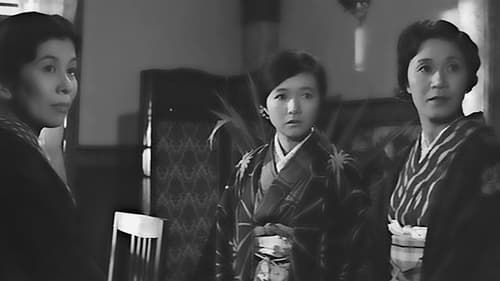
Considered one of the finest late Naruses and a model of film biography, A Wanderer’s Notebook features remarkable performances by Hideko Takamine – Phillip Lopate calls it “probably her greatest performance” – and Kinuyo Tanaka as mother and daughter living from hand to mouth in Twenties Tokyo. Based on the life and career of Fumiko Hayashi, the novelist whose work Naruse adapted to the screen several times, A Wanderer’s Notebook traces her bitter struggle for literary recognition in the first half of the twentieth century – her affairs with feckless men, the jobs she took to survive (peddler, waitress, bar maid), and her arduous, often humiliating attempts to get published in a male-dominated culture.
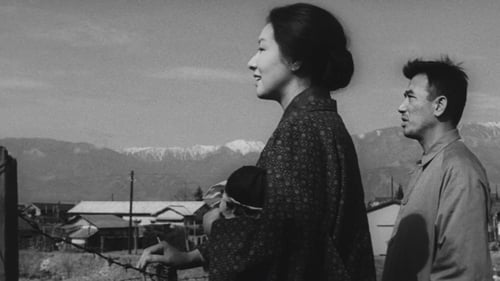
Mrs. Mochizuki
A demobilized soldier becomes a day laborer with a road construction gang, and his wife goes to work to bolster their income. Their modest dream is to see their son grow and to be happy as a family.

Miyo
Set in Kawaguchi in the early 60s, this simple story chronicles the lives of foundry families and one girl's dreams of higher education.
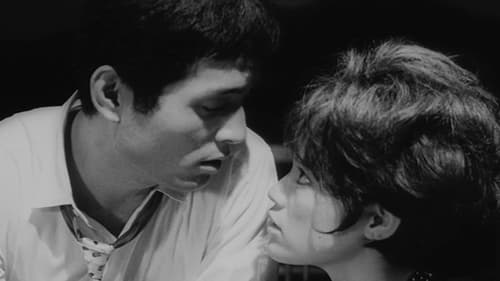
On his deathbed, a wealthy businessman announces that his fortune is to be split equally among his three illegitimate children, whose whereabouts are unknown to his family and colleagues. A bevy of lawyers and associates scheme to procure the money for themselves, enlisting the aid of impostors and blackmail.
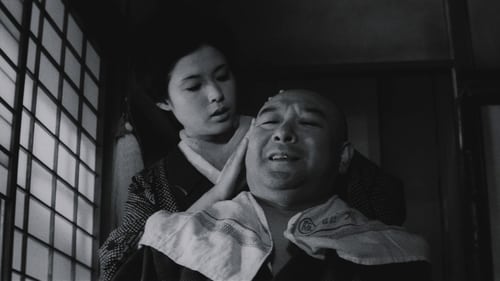
Kan Horinouchi
Satoko is a mistress by trade or fate: when her master, the silkscreen artist of the Kohoan Temple in Kyoto, dies, she is given to the temple's lascivious head priest Kikuchi. She is drawn to a melancholy young acolyte, Jinen, who has observed the profligacy of his cruel master and Satoko's utter dependence on the man. Jinen is both fascinated and disturbed by Satoko's interest in him; he is similarly caught between loathing of Kikuchi and of the dark circumstances of his birth and his own moral weakness. The story unfolds in a dreamlike manner—a flashback inspired by a now-infamous image on a silkscreen in the souvenir shop at the so-called Temple of the Wild Geese.

A touching story about a young boy, Genta, who bravely takes on life's challenges in hopes of finding a better life for himself and his sickly mother.
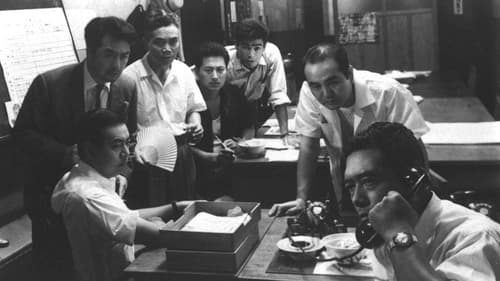
Ume Shinohara
The murder took place at a hotel in Matsushima. The victim is a woman about 28 years old. The suspect is a young man who visited her the night before, and the evidence, in addition to shoe horns and handkerchiefs, is soap with the name of the tavern. When detectives at Shiogama Station followed the man's tracks, it turned out that he had come from Ueno.
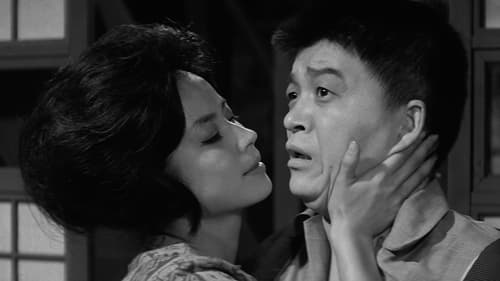
In the late 1950's prostitution was banned in Japan and if a woman was found exercising this profession they were sent to a reformatory. This is a story of one of these brave women Kuniko who is released from the reformatory and tries to build a new life.
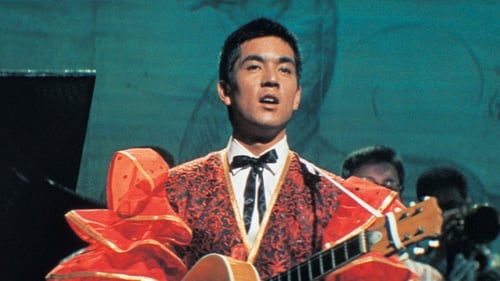
The first instalment in Toho's popular Wakadaishō (Young Guy) series.
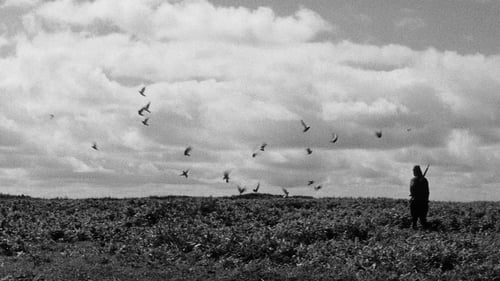
Dôro no Hinanmin
After the Japanese defeat to the Russians, Kaji leads the last remaining men through Manchuria. Intent on returning to his dear wife and his old life, Kaji faces great odds in a variety of different harrowing circumstances as he and his fellow men sneak behind enemy lines.
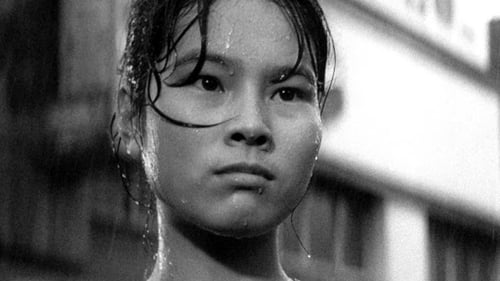
Haruko's mother
In the city of Yokosuka, Kinta and his lover Haruko, both involved with yakuza, brave the post-occupation period with a goal to be together.

Set in the postwar turmoil, Akasaka no shimai paints a vivit portrait of the life of three sisters who struggle to live in Tokyo.
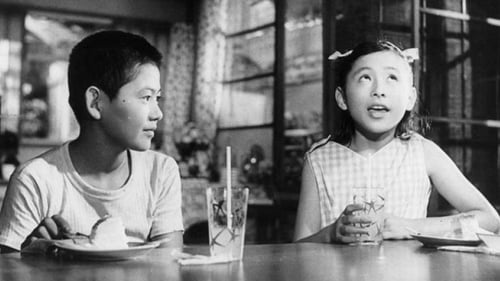
The Aunt
A single mother from the country raising a 6th grade boy comes to Tokyo, leaves the boy to live with his uncle's family, runs a struggling grocery store, and works a local inn. The boy befriends a girl, the daughter of the innkeeper...

Tomoko Wada
In this loose adaptation of "Hamlet," illegitimate son Kôichi Nishi climbs to a high position within a Japanese corporation and marries the crippled daughter of company vice president Iwabuchi. At the reception, the wedding cake is a replica of their corporate headquarters, but an aspect of the design reminds the party of the hushed-up death of Nishi's father. It is then that Nishi unleashes his plan to avenge his father's death.
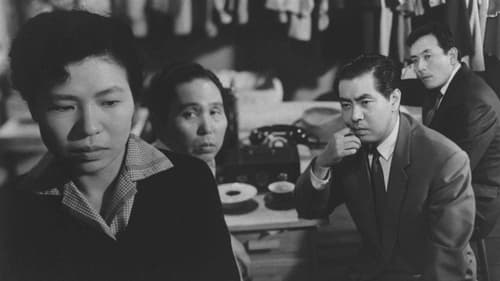
An elderly woman, Ume Matsumoto, complained to the First Investigation Department that her son Hirasaka, who runs a shoe store, had disappeared. The ominous foreboding of the First Investigation Department hit the mark, it turned out that the discovered unidentified body of the drowned man was Hirasaka. Moreover, the land in front of the station, owned by Hirasaka, was sold by someone. Suspecting that this is a planned murder, the Investigative Group, fearing the escape of the criminal, begins to act secretly, without creating an investigation headquarters.

Misae Sugiyama
Suspense drama about a married salaryman whose affair with one of his co-workers is compromised when, returning from a clandestine meeting with his lover, he runs into a neighbor who is later accused of murder. Questioned by police about the neighbor, and blackmailed by his lover's neighbor, the salaryman's lies lead him on a path to destruction.

Keiko, whom everyone calls Mama, narrates her story: she's a hostess on the Ginza, 30, a widow. She describes life's vicious cycle: acting cheerful around drunks, dressing and living well to convey confidence, needing money for these expenses and for her demanding mother and brother, and knowing she's growing older. She's of an age when she must choose: to seek marriage (difficult given her tarnished occupation), to be a kept woman, or to borrow money to buy a bar of her own. Each route has dangers, including investors demanding a return on their loans. Keiko has a quiet dignity that attracts men, but are they what they seem? Does she actually have choices?

Tetsu
When a wealthy, selfish family decides to take care of an elderly hobo who collapsed near their home, they are beset by visits from his numerous friends.
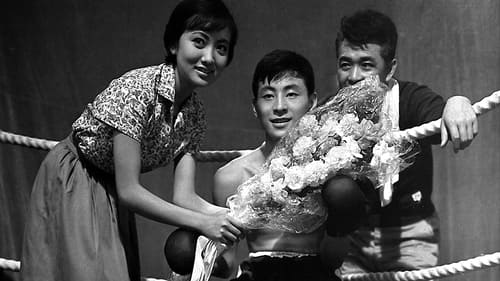
Osumi
Former boxer Daishiro lost his wife, and his only son, Kaoru, went missing, it was a heavy blow for Daishiro. One day, Daishiro got a call from his relative Morihiko. He said he forgot the winning lottery ticket of 2 million yen at the hotel, so he wants Daishiro to go and pick it up. Morihiko used the hotel for secret meetings, so he said he couldn't go there himself because he was afraid it would become public. When Daishiro entered the hotel, the Yakuza, who learned about the lottery from the newspaper, threaten the hotel maid Noriko, and want to rob her. Daishiro helps Noriko and safely picks up the lottery, but a message arrives from his relative Seikichi from Osaka. His missing son Kaoru is said to be a boxer in Osaka. "My son... He has the blood of a boxer in him..." Daishiro is heading to Osaka in a hurry...
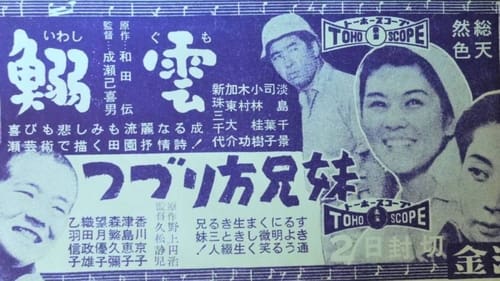
Toki Kawahara

Osen Yamamura
A rumbunctious and ribald tale of a troupe of travelling actors who alternate highlights of kabuki theatre with strip shows.
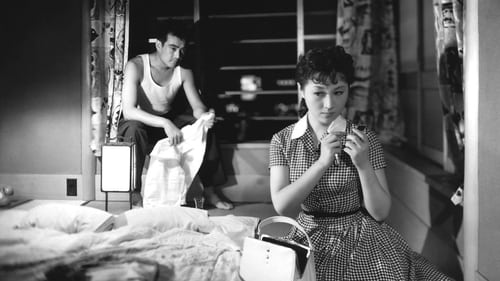
Mrs. Shimooka
Two detectives begin a stakeout based on the slim chance of catching a murderer whom they suspect will try to reunite with an old flame.

(uncredited)
The story follows a university student who moves into an apartment building and becomes involved with a waitress. The landlord then attempts to evict the tenants and sell the building through illicit means.
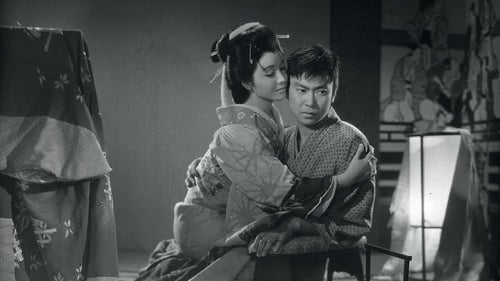
Okuma
Saheji, a man-about-town, gets stuck at a high-class brothel when he can’t pay the bill. He makes the best of his situation by performing various tasks amidst the tumult of the end of the shogunate—but always by making sure to get a “commission” for his troubles.

Ozawa-san (uncredited)
During an assignment, foreign correspondent Steve Martin spends a layover in Tokyo and is caught amid the rampage of an unstoppable prehistoric monster the Japanese call 'Godzilla'. The only hope for both Japan and the world lies on a secret weapon, which may prove more destructive than the monster itself.
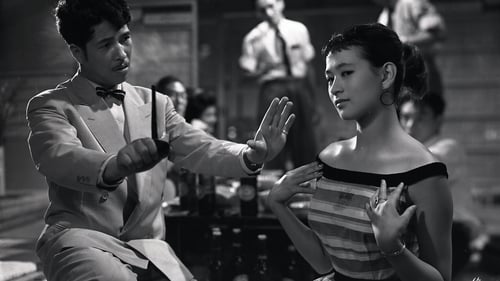
Congresswoman Natsuko Kamioka
The female members of the family of the Minister of Health and Welfare, who has just proposed a program of birth control, become pregnant one after the other. - Nikkatsu
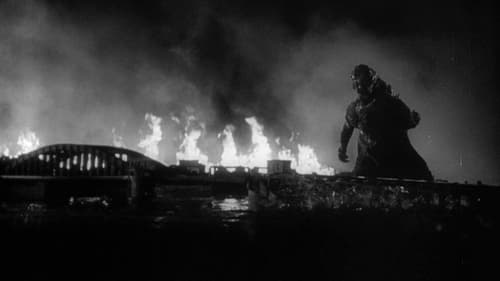
Ozawa-san
Japan is thrown into a panic after several ships are sunk near Odo Island. An expedition to the island led by Dr. Yemani soon discover something far more devastating than imagined in the form of a 50 meter tall monster whom the natives call Gojira. Now the monster begins a rampage that threatens to destroy not only Japan, but the rest of the world as well.

Панпан
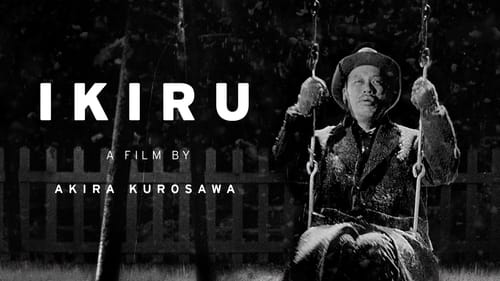
Housewife
Kanji Watanabe is a middle-aged man who has worked in the same monotonous bureaucratic position for decades. Learning he has cancer, he starts to look for the meaning of his life.
